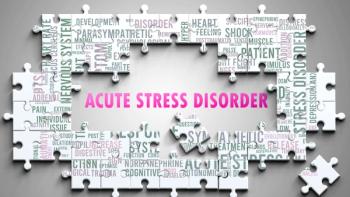
Many Aging Vietnam War Vets Are Still Battling PTSD, Along With Chronic Illnesses, That Combat Exposure May Make More Likely, New Research Finds
Two groundbreaking studies shed light on combat’s lasting physical and psychological damage more than 50 years on.
The toll of combat exposure and post-traumatic stress disorder (PTSD) is still disrupting the lives of soldiers who returned from Vietnam more than a half-century ago, according to two studies that followed and checked in with the same men — fewer than 0.4% of U.S. military there were women — over 35 years.
Among the most striking findings: Soldiers who saw combat in the 1960s and ’70s were nearly twice as likely to have a diagnosed heart condition in 2020 compared to vets in noncombat roles. And veterans with heart disease reported significantly more comorbid chronic illnesses like arthritis and respiratory conditions, including sleep apnea, emphysema and asthma.
Both trends were influenced by the extent of combat experience, with rates of heart disease and chronic illness highest among those who faced the most intense combat fighting. Chronic illnesses also were reported more often by men with PTSD.
Another eye-catching finding: Veterans with subthreshold PTSD – those whose symptoms indicate clear evidence of distress but don’t meet the threshold for a diagnosis – were found to have worse physical and mental health outcomes compared with those who never experienced PTSD symptoms.
A quarter of participants reported having subthreshold PTSD in at least one of the three survey waves. The condition often is not sufficient to qualify for the VA’s PTSD services.
“Veterans with subthreshold PTSD suffer significant health burdens that are often overlooked,” Steven D. Stellman, Ph.D., one of the authors and professor emeritus of epidemiology at Columbia Mailman School of Public Health in New York, said in a university
Steven Stellman and Jeanne Mager Stellman, Ph.D., a professor emerita of health policy and management at the school, were co-senior authors of both studies. The papers were produced by the same team of researchers, and other researchers were based at the Boston VA. The studies were published five weeks apart in the Journal of Occupational and Environmental Medicine.
Both studies used data from surveys mailed to a random sample of 12,400 war veterans in 1984 and 1998 and, in 2020, to a subset of 729 living veterans who had responded to both previous surveys, making this one of the longest studies of Vietnam veterans. The surveys asked about combat exposure, probable PTSD and history of diagnosed chronic illness.
The participants were, on average, 72.5 years old during the most recent wave of data collection five years ago.
The first study, posted online on Dec. 18, 2024, focused on the impact of persistent combat-related PTSD on heart disease and chronic disease comorbidity in aging Vietnam War veterans.
The
The social dysfunction study identified four distinct PTSD patterns over 35 years among male veterans who were 69- to 75-years-old in 2020. The majority (56%) were found to have never had PTSD. The second-largest group (25%) had subthreshold PTSD. Just under 10% had PTSD in the past but not currently. And 9% were found to currently have PTSD, rising to nearly 16% among those who were exposed to heavy combat. This was consistent with the strong combat-PTSD dose-response relationship that was found to persist over time.
Veterans with PTSD or subthreshold PTSD reported significantly worse life satisfaction, higher levels of depression and anxiety, and poorer overall health compared with those who’d never had the condition or had it in the past but not currently.
The findings underscore the importance of early and ongoing social and mental health support for veterans reintegrating into civilian life, Jeanne Stellman said: “Veterans who had fewer community social supports upon their return from Vietnam were more likely to develop PTSD.”
Overall, she said, “This research reinforces how the trauma of war continues to affect veterans long after the war ends.”
Newsletter
Get the latest industry news, event updates, and more from Managed healthcare Executive.























